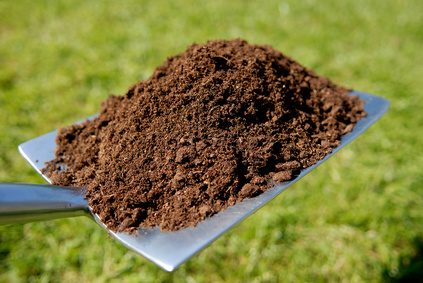|
What Is Compost
Scientifically speaking, it is an aerobic mixture of decaying organic matter, such as leaves and manure, used as a soil amendment or conditioner. In your garden, it's the dark, crumbly, earthy-smelling form of that decaying or decomposing organic matter. As you continue gardening each year, the flowers and plants in your garden will be using up and depleting the nutrients in the soil.
You'll want to replace those exhausted nutrients and also continue to improve your soil conditions to sustain and maintain your beautiful garden areas. You can easily do this yourself in piles or tubs at home. You may want to look into and possibly invest in a tumbler specifically used for easily and conveniently turning the necessary ingredients for a good rich mixture. There are four vital elements:
Adding a 2-3" layer of this nutrient rich organic material to the top of your garden soil each year (1" each spring and then another 2" each fall) will help improve your soil on a regular basis and keep your flowers and plants fed with the nutrients they need to remain healthy and strong. Composting Tip No Wait Method Use a large bale of peat humus (not peat moss as it is more acidic and therefore less desirable as a substitute) mixed with 10# of lime and two 50# bags of processed cow manure. Spread a 1-2" layer over your garden area each spring and use some with each item you plant or transplant to easily keep your garden soil in good condition. Related Articles
Wintering
|



